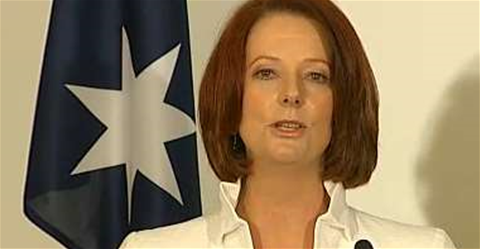The organisation building the National Broadband Network will restart spending, tenders and recruitment following news of the installation of a Labor minority government.
With the Coalition vowing to scrap the NBN, its architect NBN Co was operating at limited capacity during the election campaign.
Four of the five Green and independent MPs backed Labor yesterday, with Tony Windsor and Rob Oakeshott saying Labor's broadband policy was critical to their decisions.
NBN Co welcomed Windsor and Oakeshott's announcements.
"NBN Co's management and its 300 employees welcome the clarity that Tuesday's announcements provides in relation to the future of the NBN," a NBN Co spokesman said.
"We will now work to restore deferred processes, including the recruitment of staff.
"NBN Co will meet with its shareholder ministers to discuss future policy directions."
Meanwhile, Communications Minister Stephen Conroy will meet with NBN Co in the coming days to "re-design" its rollout timetable in a way that prioritises regional deployment of fibre.
The Prime Minister and key independents yesterday struck a deal that would see regional areas get priority over metropolitan areas for National Broadband Network (NBN) fibre.
Conroy told the ABC's AM program today that the re-jig was "a question of a timetable about where they'll (re)start" rolling out the network.
Next: Coalition, Greens respond to broadband
Opposition leader Tony Abbott said he "wasn't surprised or shocked" by the decision of the independent MPs but that he was disappointed.
"I was nevertheless grateful for the opportunity over the past fortnight to put my case to the independents," Abbott said.
He believed he had taken good policies into the election and lambasted the Government over its broadband network policy.
"My suspicion is that the NBN is going to be school halls on steroids," he said, referring to the cost blowout on the Building the Education Revolution scheme.
"I think it's going to be an absolute minefield of waste and incompetence and you can be absolutely certain the Opposition will be hypersensitive in this area.
"No competent government would commit $43 billion without a full cost-benefit analysis. The fact this Government has done so is a very bad sign for competent government."
The Greens' response
Greens communication spokesman, Senator Scott Ludlam, said Australia had reached a "good outcome" for its telecommunications landscape.
But the broadband debate was far from over. Senator Ludlam said that although there was clarity over the House of Representatives, the upper house would not be finalised until the middle of next year.
"Technically, the Senate is still hostile to the prospect of rolling broadband bills out. We'll be going into negotiations the Coalition and [Family First Senator] Steve Fielding."
He noted the NBN was "one of the areas where there was a clear distinction between the parties", with Labor committing up to $43 billion on a fibre-based network, and the Coalition planning to spend just over $6 billion.
"The issues we've been raising about privatisation and rolling it [the NBN] in rather than rolling it out got good coverage during the campaign," he said.





_(27).jpg&h=142&w=230&c=1&s=1)

.png&h=142&w=230&c=1&s=1)
_(21).jpg&h=142&w=230&c=1&s=1)




.jpg&w=100&c=1&s=0)











